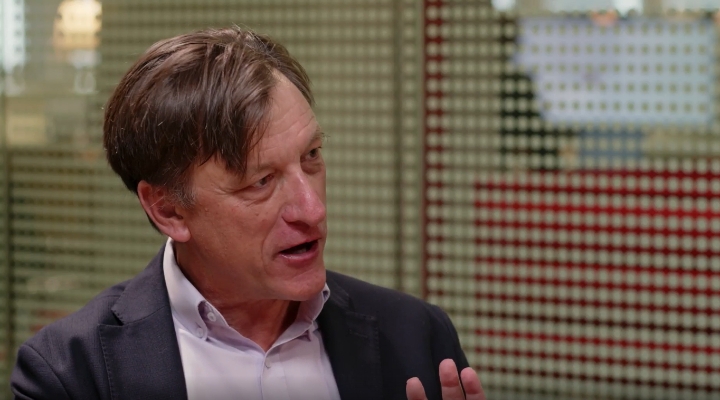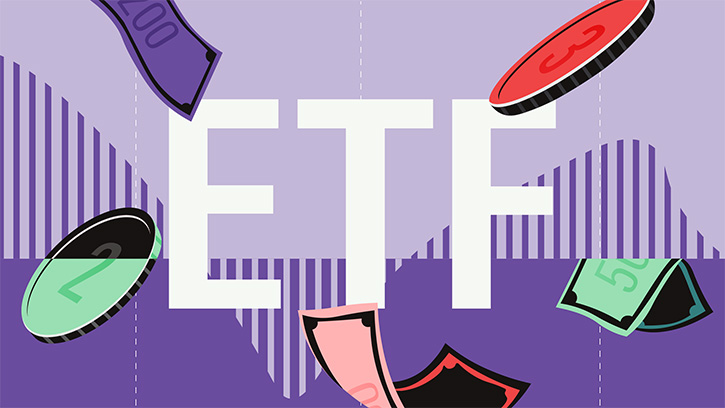
The eyes of the European exchange traded fund (ETF) industry are fully fixed on UBS’s takeover of Credit Suisse, and with good reason. In fact, current figures suggest UBS could now become the fourth biggest provider of ETFs in Europe, edging ahead of Vanguard as it takes over the six Credit Suisse ETPs worth €6.2 billion.
This is according to a Morningstar report looking at the state of the ETF industry after the first three months of 2023. And according to author of the report José Garcia-Zarate, associate director for passive strategies research at Morningstar, UBS's acquisition of Credit Suisse was the biggest news of the quarter.
"[The merger] should result in the consolidation of the two fund ranges, with UBS bound to strengthen its position as a passive fund provider in Europe, particularly in the Swiss market," he says.
The bulk of passive assets in the Credit Suisse fund lineup are in traditional index funds, but even so, the ETF range would bring UBS ahead of Vanguard – albeit by a whisker.
"For the time being, given the very early stages in operational and legal proceedings, we continue to show ETF flow data for UBS and Credit Suisse separately."
In that sense, UBS doesn’t have much to celebrate when it comes to first quarter fund flows. Among the five largest providers, it was the only one to see inflows lower than the fourth quarter of 2022 (€240 million against almost €1.9 billion).
Garcia-Zarate says: "it is difficult to say whether investor sentiment about the takeover of Credit Suisse may have played a role here. What we can say with more certainty is that a key factor was a large redemption of over €1.0 billion from the UBS MSCI ACWI Socially Responsible ETF in March."
Away from UBS, looking at other ETF issuers, the first three months of 2023 were positive. This was particularly true for iShares (BlackRock), which received net flows of €18.9 billion. Amundi, which is the second-largest operator by managed assets in Europe, collected €1.95 billion. Xtracker and Vanguard, which are third and fourth, saw net subscriptions of €2.99 billion and €3.95 billion, respectively.
Inflows and Asset Growth in Q1
Overall, the European ETF industry enjoyed a more optimistic start to the year than it saw at the tail-end of 2022, with net flows of €38.2 billion, compared to €27.2 billion. Assets under management increased from €1.32 to €1.42 trillion over the same period.
Quarterly Flows into ETFs by Broad Category
Investors saw a renewed appetite for equity ETFs, which raised €21.1 billion (up from €13.8 in the last quarter of 2022). Bonds, on the other hand, recorded net flows of €15.1 billion, a little less than Q4 2022.
Among equity ETFs, the preferred choice was emerging market ETFs (€7.22 billion) followed by global large-cap blend equity (€6.57 billion) and Europe large-cap blend equity (€1. 82 billion).
At the bottom of the table we find the value categories, not surprising considering that growth-oriented stocks have outperformed over the period.
On the fixed income side, investors continue to mix long-term positioning in core all-maturity exposures, both government and corporate, with short-term tactical cash management underpinned on short-duration bond strategies, Garcia-Zarate explains.
"This was also reflected in flows into individual funds, with the likes of iShares Core Euro Corporate Bond ETF (the largest bond ETF in the European market and a classic core holding in a euro-biased portfolio) and Pimco USD Short Maturity ETF (an active ETF working as a cash management solution, in this case for USD) amongst the top-10 money-gathering ETFs for the quarter."
The Awakening of Thematic ETFs
The year 2023 started off in a different gear than 2022 for thematic ETFs , which attracted €800 million, against €200 in the previous period, the best result since the end of 2021. Replicants on the "physical world", a universe that includes energies alternatives, water, the circular economy and food, have captured around 50% of the flows, while the remainder is poured into technology and social trends.
For Sustainable flows, on the other hand, it was a low-key quarter with €10.4 billion raised, down from €14.9 billion in the last three months of 2022. Flows into this type of fund accounted for 27 % of the total, against 55% in the previous period.
With €267.6 billion of assets, sustainable ETFs represent 18.8% of the total, a percentage that rises to over 20% if ETCs (Exchange traded commodities) are excluded.








.jpg)



















